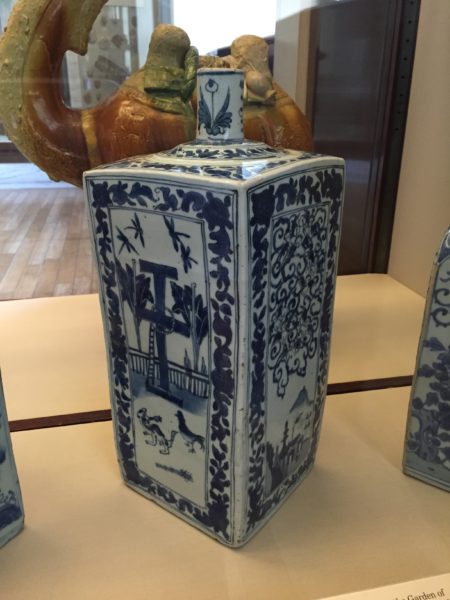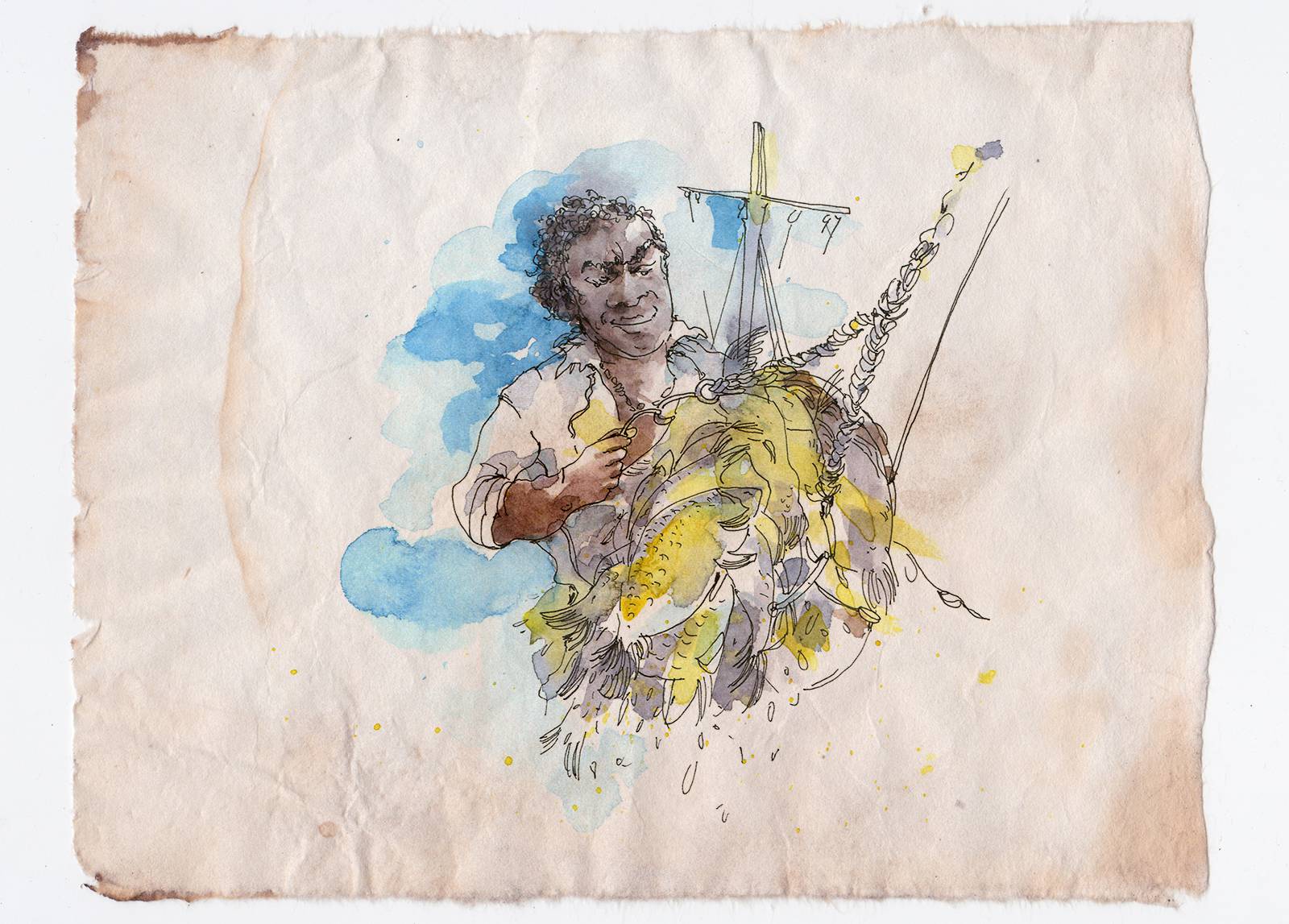Some time has passed and too many letters are left unwritten. The seasons have changed, and the ships continue to come and depart for Macao and Portugal.
I have made some friends among the captains. Capitão Botelho of the Amaro gave me a small blue China bottle, covered in delightful paintings of birds. I thought of Menezes and his household. Capitão Fernandez and Pestana sent me a large amount of black velvet, three pieces of black tafetta cloth, and 12 pieces of satin cloth, along with some silk stockings. Martines offered a present of citrus fruit, visiting a while at the Minatoya house. He offered his services for any future voyage.
The life of a trader is still new to me. I am a sailor first, but have my head about me and a crude grasp of the Japanese language. Almost without deciding, I remain in Japan. The reasons are hard to write; words elude me.
All these years, I looked for a way to escape from the heavy hand of my Portuguese masters. First I freed us on the São Catarina. Now I free myself, again, by staying in Nagasaki and living with my Japanese friends. I no longer hear the constant sigh of the angry ocean, or the moaning of dying men. There is no murmuring of the Jesuits below decks. Instead, it is the constant sigh of the quiet harbour, the moaning of insects in the summer months. Now, there is only the murmuring of Nagasaki and her daily life.
Even so, foreigners are targeted every day. Any association with the Jesuits and the Portuguese means my life is in danger; my black skin makes it impossible to go unnoticed. Others of us have been beaten and accosted on the street—we move closer to each other now, into the district. And yet, I have chosen this over the ocean.

